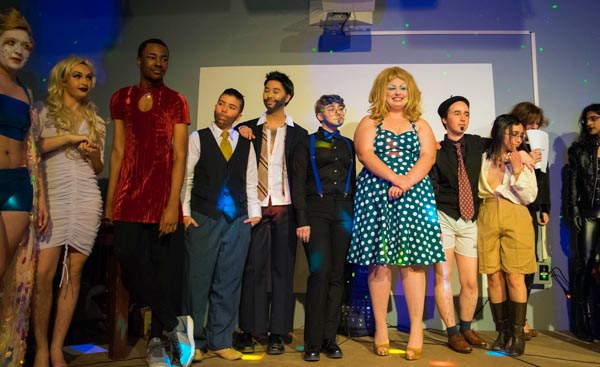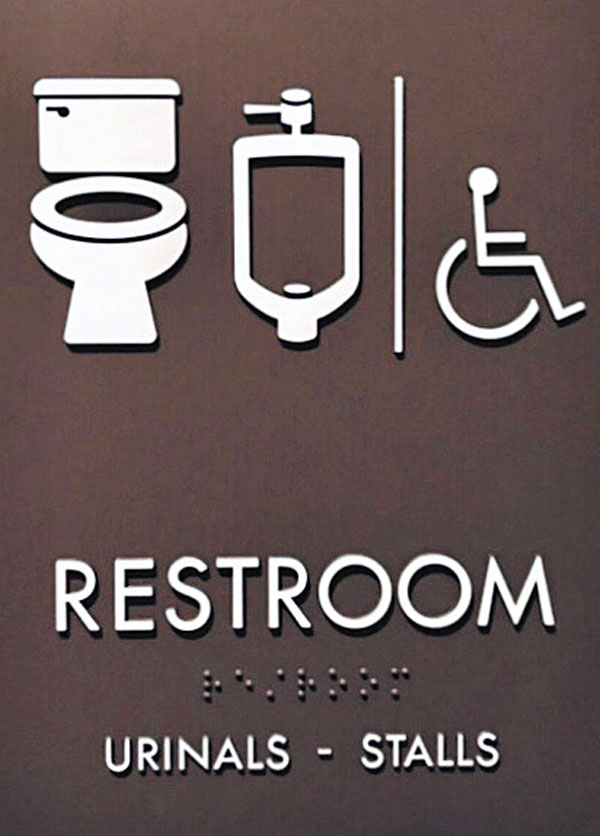9 Things For LGBTQ+ Students and Allies To Look For in an Inclusive College
Higher education prepares you to be your best self. It’s more than memorizing facts. College is where you learn how to learn, to solve problems, and to work with others. Through that process, you learn who you are and who you want to become. And you learn best when you are in an inclusive and diverse environment where people of all sexual orientations and genders can thrive.
Here are nine things for LGBTQ+ students and allies to look for in an inclusive college.
1. Vibrant LGBTQ+ Community
“Every single day matters when it comes to building a world where every person can live their life to the fullest.”
— Sarah McBride, Tomorrow Will Be Different

Look for a college where you can have fun being who you are. Will you be able to openly express your gender and your sexual orientation, and connect with LGBTQ+ students who do the same? Many schools have drag nights which are great for showing off your extra fabulous side. You’ll also need day-to-day socializing and support. Are there on-campus cultural and social events for LGBTQ+ students? Are there LGBTQ+ student groups?
2. Support Systems for LGBTQ+ Students
Good colleges provide great support and you want a college where that support is attuned to LGBTQ+ issues. Whether you’re confiding in a residence hall director about a new crush or meeting with a nurse about a medical issue, you want to be sure you are talking with support staff that respect you. When reviewing a school, reach out to the admissions office and current students about how the college supports LGBTQ+ students. Does career development consider the inclusiveness of an internship opportunity? Do LGBTQ+ students feel safe around campus security? Are mental health counselors and medical staff trained for working with LGBTQ+ students? Colleges provide support to help students get the most out of their educational experience. Look for a school where these departments excel at serving LGBTQ+ students.
3. Inclusive Academics
“We can't say that we are an inclusive campus if our academics aren’t acknowledging the scholarship and experiences of queer people, especially queer people of color.”
— Moamer Alsaedi, Simon’s Rock ’16
Inclusive colleges will include LGBTQ+ studies in their curricula. Queer studies, sexuality studies, and gender studies contribute to our understanding of the world. Also having scholars and classes in these fields will contribute to a thoughtful campus culture. However, LGBTQ+ shouldn’t be confined to the Queer Studies Department. LGBTQ+ topics and scholars should be infused throughout the curriculum.
4. Inclusive Housing, Bathrooms, and Facilities

Your residence hall is where you can relax and recharge. It’s the place to work out ideas in an informal way. Staying up late talking with your roommate about an exciting idea from class is an important part of the college experience. But it only works if you’re in a residence hall that accepts you for who you are — including your identified gender and sexuality.
In college, you’ll have plenty of opportunities to challenge yourself. Learn a new language, present your original research, or write a play. You shouldn’t have to worry about running across campus to find the one bathroom you feel comfortable using. Look for a campus bathroom map to see how many restrooms are gender neutral.
Look for a college where you will feel safe in your housing, using the bathroom, and visiting all of the campus facilities. The campus facilities are there to help propel you to success.
5. Self-naming and Self-identification
You should be in control of your name and your gender and you should have the power to determine them. College identification cards, class rosters, and listings should use the name and gender you identify with, which may differ from your legal documents. Intake forms should have inclusive options. Faculty, staff, and students should address you with your self-identified name and pronouns.
6. Including an Inclusive LGBTQ+ Community
“It is not enough to have a policy — or even a statute — prohibiting discrimination on the basis of sexual orientation in a world in which so many lesbians cannot find any work at all, and so many more cannot find work that is meaningful or rewarding, and so many must work so hard and so long for so little. It is not enough to have justice for only those lesbians who can afford to purchase it.”
— Ruthann Robson, Queerly Classed
LGBTQ+ people have diverse backgrounds and identities. That means that in order to support LGBTQ+ people, there must be support for students across race, class, religion, nationality, physical ability, gender, and sexuality. The institution should encourage student expression and activism. Colleges that support the intersectionality of identity will have the most vibrant LGBTQ+ communities.
7. Financial Aid
“…For a disinherited gay, lesbian, bisexual, transgender, or queer (LGBTQ) child from an unsupportive family, it can be difficult to ask Mom or Dad for help — especially if they’re told to ‘get out.'”
— Joseph Gentile, TNGG
Since LGBTQ+ students are less likely to get support from their parents, inclusive colleges create a financial aid process for students who don’t have their parents’ support. Students should have the option to apply for aid without a parent signature and ultimately receive an appropriate aid package. Additionally, schools should extend this support to current students. After coming out in college, students sometimes lose parental support. The college should fill that gap.
Even if you are not in this situation with your family, it is worth learning about resources that the college offers. These inclusive policies make the community stronger and healthier.
8. Consistent Policies
Review the college’s official policies. Does the student handbook offer explicit protections from discrimination and explicit bias? Look for policies that show how inclusivity is ensured and implemented.
9. Regional Community
When you are in college, you won’t always be on campus. You’ll go to town to hang out; maybe you’ll have an off-campus job or internship. Many people live and socialize off-campus. You want to be in a town and a region where you not only feel safe, but can thrive. Ask for information on reports of discrimination and community relations with law enforcement, as well regional LGBTQ+ events and organizations.
Inclusive College
An inclusive college is more than just taking classes. You’re joining a diverse community, with endless opportunities for self-expression while learning from one another's different backgrounds, experiences, and points of view.
